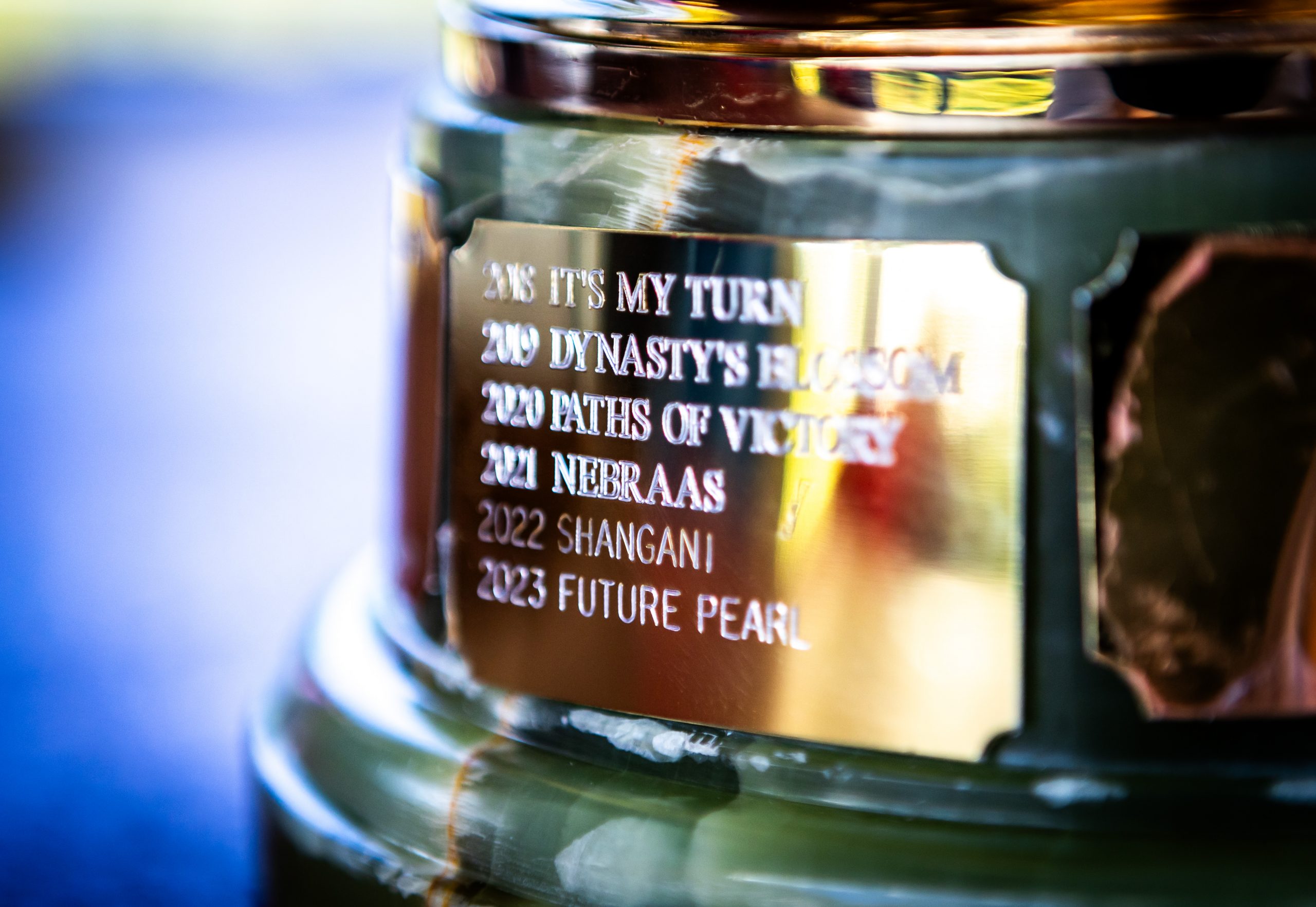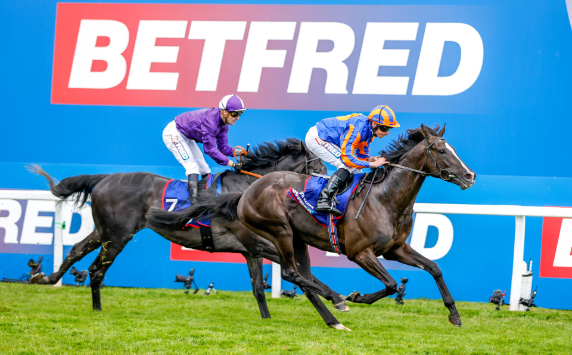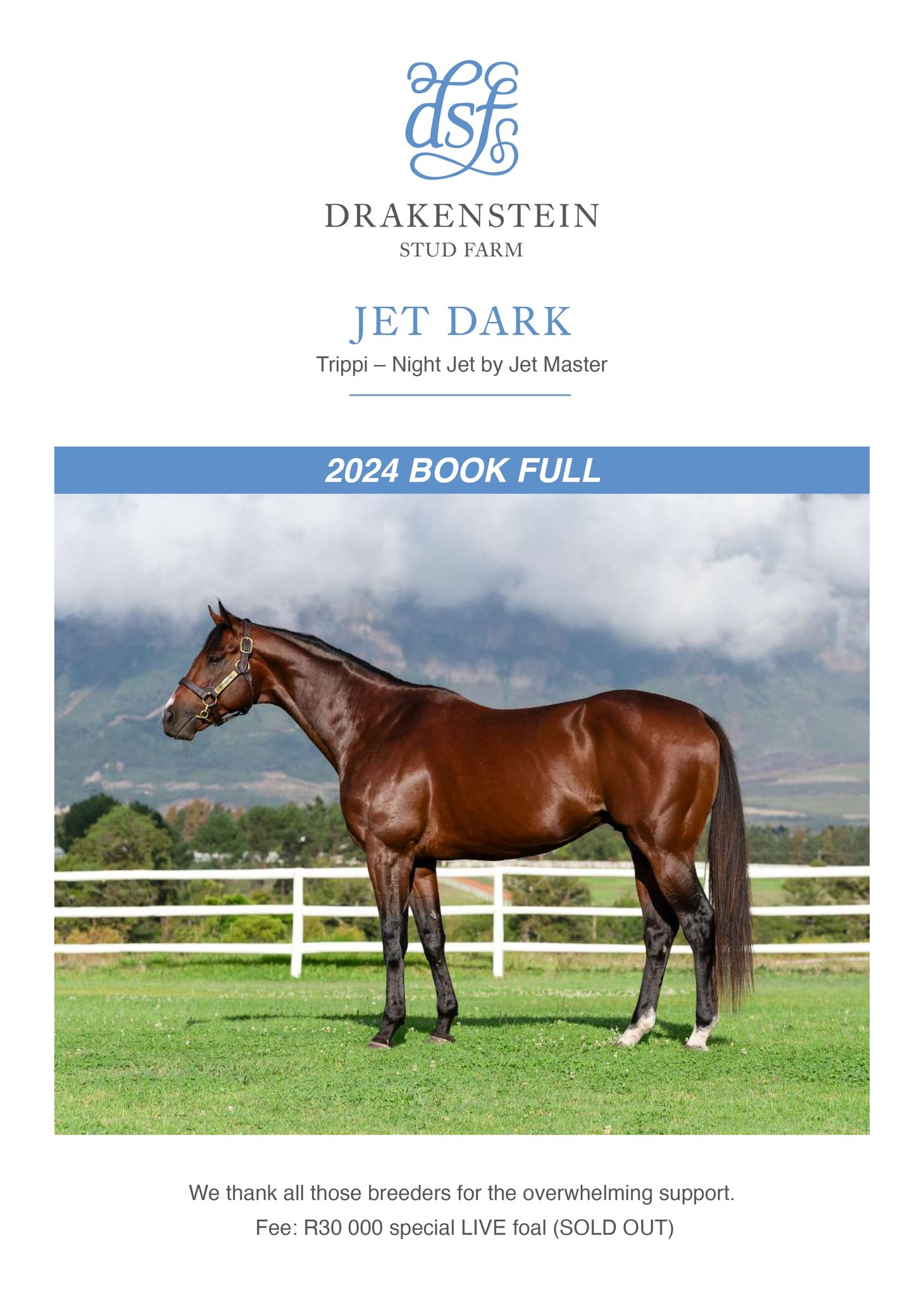The Martin Wills Memorial Trust is a UK charity established to commemorate and celebrate Martin Wills, a remarkable and much loved amateur jockey, journalist, family member and friend who was sadly lost to cancer in April 1992 at the age of 39.
To honour his memory, his writing talents and his love of horses, the Trust holds an annual creative writing competition to foster and support budding young writers. Submissions may be fact or fiction and should be based on a central horse racing theme. Entries are open to UK and Republic of Ireland residents and there are three categories – Under 15, Under 19 and Under 26. The judging panel is headed by well-known racing journalist, celebrated author, radio and television presenter and ex-jockey, Brough Scott (who recently published Warrior: The Amazing Story of a Real War Horse). He is joined by a host of racing and writing luminaries such as Marcus Armytage (racing journalist, ex amateur jockey and course record holder for the 1990 Grand National), Simon Barnes (author and chief sportswriter for the Times), Steve Dennis (Racing Post journalist), Sean Magee (author and racing journalist), Lissa Oliver (author and racing journalist), Stephen Wallis (MD of Newmarket Racecourse) and Catherine Wills (Martin’s sister, who is an art historian, racehorse owner and breeder).
This year was the 20th anniversary of the award and the standard was, as always, exceptionally high, so much so, in fact, that the panel announced joint winners for the under 26 category. Hannah Barraclough won with her entry ‘The 2:20 and Wetherby’, about a grandfather and granddaughter’s shared love of racing. Hannah shares the honours with Patrick Mullins for ’Living The Dream?’, a moving and hard-hitting account of his ill-fated ride in the 2011 Grand National, which preyed on my mind long after the words faded from my computer screen.
However, all the entries are impressive, interesting and thought-provoking and I highly recommend a browse through their archive of prize winners at www.willswritingawards.co.uk
“The 2.20 at Wetherby” by Hannah Barraclough
“I’d read them myself but someone’s had my glasses,” he said, patting his pockets and making slow movements to feel down the sides of the chair. “They’ll be round here somewhere,” I said, flicking through the paper to the racing pages, “We’ll have a look for them in a minute.”
Truth was he didn’t want to hold the paper in front of me. The arthritis meant he couldn’t flex his fingers and the Parkinson’s meant the print shook too much for him to see. And then there was the glass eye. When I was little he used to let me touch it and I’d let my tiny finger-tip touch the smooth white surface before running off with an excited scream. He said he’d lost it at sea, and I imagined him battling pirates and walking the plank.
“2.20 at Wetherby? That the one?” “Aye, that’s it lass, let’s be having them,” he said, nodding his head and closing his eyes while I read.
“Tipperary…Silver Dagger…Runariot…Stroke of Twelve…Clover Foot…Pearl Fisher…”
“That’s him, he’s the one. Pearl Fisher, like the opera. Lovely bit of music that. Beautiful.”
“Do you want me to put the money on, Granddad?” I asked.
We did this every week. He gave me a fiver and I’d pretend that I was going to the bookies for him. When he fell asleep, as he always did, I’d sneak the money back into his wallet. It was the same fiver he gave me each time. He thought he still lived on Melville Street, in the two-up, two-down he shared with Grandma. There’d been a betting shop on the corner 30 years ago and he’d gone in every Saturday to place his bet. The bookie, Geoff Dixon, had taken a sudden heart attack when I was six and the doors had been closed since then. But Granddad still asked me to pass his regards to Mr Dixon as I left the room.
I nipped into the visitors’ loos while I was in the corridor. When I came out, one of the carers, Julie, was folding towels on a wheeled trolley nearby.
“Putting your Granddad’s bet on love?” she said with a smile. She knew the routine.
“Yeah, Pearl Fisher again.”
“If that horse really had been coming first every week, he’d be a millionaire by now,” she said, turning the trolley round to push it to the store cupboard.
I laughed and opened the door back into his room.
“Come on, race’s started,” he called, “We’ve got ourselves a good view of the action here.”
He was staring at the window and the TV was silent. The paper I’d read from was dated 18 months previously and the race was long finished. Six months after that particular 2.20 at Wetherby, Pearl Fisher had suffered a nasty fall. I never mentioned it; it was the name Granddad liked. And if I had told him, he might still have forgotten by the next week.
“Can you see him?” he asked, pointing at the pane of glass, “There he is, out in front.”
“I can see him Granddad,” I replied, “He’s running well.”
The visions of the horses had marked the beginning of the illness. Now he saw them often, running on the imaginary racecourse outside his window. Sometimes the racecourse turned into moorland and the horses ran wild and Granddad would become wistful as he watched them fly over the heather with the wind at their feet. Beautiful, he’d say. Beautiful creatures.
“Go on lad!” he shouted, urging the image of Pearl Fisher onwards, “Nearly there, c’mon…yes! That’s my boy.” He smacked the arms of his chair twice with the palms of his hands and turned to grin at me.
“Done it again Granddad, still on that winning streak eh?”
“Aye, I always did have a talent for spotting winners. Knew that one would do well, his name reminded me of something…”
“The song?”
“That’s it, the song. Lovely bit of music that. Beautiful. Think I might have it on cassette round here somewhere…” He started to rise. “It’s ok Granddad, I’ll see if I can find it,” I said, going to the radio cassette player he’d brought from the old house. The Pearl Fishers by Bizet was the only music he listened to anymore. Every time was like the first time. I pressed play and the famous duet began. Granddad closed his eyes again and folded his hands in his lap. He’d be asleep in a minute. I stayed for a while, until I heard his breathing deepen, then I left.
They came to me that night. I knew they were same ones – they looked just how Granddad described them. Dark and sleek, the moonlight highlighting every curve of muscle with silver. I was stood on the moor and they were a short distance away, too far to touch but near enough for me to see their breath in the air and the slow blinks of their long-lashed eyes. A keen wind ruffled tails and manes but they seemed unbothered and I edged my way closer. One or two brown eyes glanced sideways at me, without fear, and I was soon amongst them, stroking smooth flanks with delicate caresses. Then I was on the back of one, no saddle or bridle, galloping over the gorse and shrub-land with only the sky and the stars above me. Their hooves made no sound. Each was as fast as the other, all equal in size, all the same bluish-black. The landscape seemed never-ending, stretching out in front and behind, and I rested my head on my horse’s neck as my eyes began to close.
The next day, Sunday, I got dressed as usual, the dream nothing more than a vague memory. On Sundays I could take him out in his chair. We liked to go and get fish & chips and sit by the seafront.
I arrived at the home and made my way upstairs. A doctor passed me, going down. I walked along the corridor and saw Julie coming out of Granddad’s room. She looked up and saw me and I knew from her expression the news she was about to give. She had the same look the nurses had when Grandma went into hospital.
“Oh pet,” she said, shaking her head in sorrow, “I was just going to ring you…”
After she’d told me the particulars, she said I could go in the room if I wanted. She’d just finished changing him after the doctor had gone. He was laid neatly in bed, arms on top of the sheets, blankets folded down in sharp creases. Julie had done a good job, combed his hair and given him clean pyjamas.
I knew he was gone. I stroked his hand and turned to the window with silent tears on my cheeks. A small carving of a horse, made of green jade, sat on the windowsill. I remembered it from childhood, the way it felt smooth and cold in my hand. I picked it up and the weight of it still surprised me. It always reminded me of Granddad – no-one else ever seemed to think much of it. I pressed play and The Pearl Fishers filled room.
.
“Living the dream?” by Patrick Mullins
We stride out through the glass walls of the Aintree weighing room and walk through the organised chaos that is Grand National day. Down the steps into the parade ring, get the picture and set off to try and find my connections among the shifting crowd.
Finally time is moving along at the right speed again. Tip my cap, shake some hands, smile. It’s all just getting in the way. The bell rings and I set off to find my partner. Jump up into the saddle and walk out under the stand, in between the well-wishers, the punters and the drunks.
The parade goes surprisingly quickly and smoothly, just like a party when you’re enjoying yourself. Gallop down to the first, have a look, turn around and gallop back. Other horses are galloping past me, beside me, against me. The circle moves and drifts, I just try to keep the jockey in the pink silks in my line of sight. My back protector feels a little tight but I find myself cracking a smile. The crowd starts to come to life. The circle is becoming a line, the walk becoming a trot. “Not yet” the microphone tells us. We keep coming. “All right, away you go!”
And we’re off. The crowd is drowned out by the thunder of hooves. We’re away nicely, just tracking the pink silks. Middle of the pack, on the inner middle of the track. Right where I want to be.
We’re rattling along but somehow I thought we’d be going faster. The Melling Road flashes under us. The first fence is rushing to meet us, here we go. A stride comes, Dooney’s takes it and we’re over. Land, look for some space, get into it and aim for a clear spot on the next fence.
Almost immediately we’re over it too. Just on our right a chestnut crumples and splashes along the ground but we whizz past him just before he rolls our way. Luck must be in. It must be how the RAF boys felt when one of their squadron went down. Hope he’s fine but too busy minding my own hide to check.
The ditch appears next, the stride looks long. I sit and let Dooney’s choose. He’s been here, done it, he knows what he’s at. He shortens, lifts quickly, touches down and gallops on. The pink silks take it half way up, there’s an almighty thump, he stays up but drops out of view. I’m a robin without an eagle now.
We’re in the first ten I reckon. The ground seems to fly by, another fence comes straight away, no time to think. We glide over the fourth, meet the fifth in our stride and wing it. Now for Becher’s.
Everything has gone to plan. We’re nicely handy, chasing the leaders, on the inner of the middle and jumping well. Anything could happen now, we’ve as good a chance as any, it’s the National after all. The horse in front of me drifts right, squeezing my space between the other horses. I guide Dooney’s to the left. We’ve a clear view. Stride looks a little long again. Your call Dooney’s. He goes for it, lifts, then doesn’t. Shit. Bang. Mane. Blue, green, arms.
I’m standing up, talking to someone, about something. There’s a field of horses galloping in the distance. I turn around to pick up my stick. There’s a dark horse on the ground, head facing the fence, away from me. Don’t be my horse. Please.
I run around and there’s the white splotch on the forehead. It’s Dooney’s. He looks okay, not in distress. I look at his legs. Nothing broken. Good, good, bloody great actually! He’s only winded. I go and undo the girth. Suddenly we’re surrounded by green. There’s people running in around Dooney’s.
“Sure he’s only winded” I tell them. “Not so sure, son” says the vet “ Look at his tail” It’s loose and floppy. Someone pours a bucket of water over Dooney’s. He lifts his head and moves his front legs. But his back legs don’t move.
The people begin to shout. A rope is slung around his legs. Whistles sound nearby, lots of them. The thunder gets nearer and nearer until the field storms past. A loose horse jumps the fence and misses us by a few feet. People are still shouting. My shoulder is pumping.
I can’t keep a train of thought. Someone hands the vet a small black case. Fuck. I look at Dooney’s quickly and walk down along the fence. Other jockeys are watching the end of the race, I couldn’t care less. Pop. Turn left. Walk. Stupid fucking race. Why Dooney’s? Why me? I’d gone over the race a million times and never thought of this.
Jeeps and buggies offer me lifts. I hear them but don’t see them. “No” I grunt. I can’t say more than one word. That’s it, I’ve had enough of this riding crap. I’m going home. I want the next flight home. I don’t care about the horse in the bumper, let someone else ride him. Ah not Dooney’s. Damn race. He wasn’t some horse I’d swung my leg over a few times. He’s been in the yard six years. I’ve seen him win his bumper. Win his hurdles. Get injured and come back. Seen him win over fences. Seen him fall over fences and get back up. He was my first winner over fences. He was a gent. That’s it, I’m giving up, I’ve no interest in this anymore.
I just keep walking. “You’ve got to keep your chin up” says a voice beside me. A jockey in white and blue silks. “It’s outside the back door” No it’s not. He’s down behind Becher’s. I keep growling the lump out of my throat.
We’re back at the stand, amongst the well- wishers, the punters and the drunks again but I don’t see them. I’m not seeing or thinking anything, just walking and concentrating on left foot, right foot. Everyone is in my way. A reporter asks me for a comment on my race. Are you serious! I don’t have the energy to be angry with him.
Back in through the glass walls into the weighing room. I slam the door open. Didn’t mean that. There’s people everywhere watching replays and discussing the race. I feel sick. I walk through to the smoking area outside the weighing room.
I find a seat. Sit down. Close my eyes. Deep breath in through my nose. Fuck fuck fuck fuck. Dooney’s. Ah fuck. What the hell happened? I don’t know. He didn’t get an inch off the ground. What’s to be gained by going home? It happens. Happens to everyone and everything. Suck it up. He didn’t suffer, he knew nothing about it. There are worse ways to go.
Nothing I do will change what happened. The sooner you get up and get on with things, the easier it is. Go out and win the bumper, take something home from the day. Open my eyes. Breathe out. Stand up. Walk back into the weighing room.








